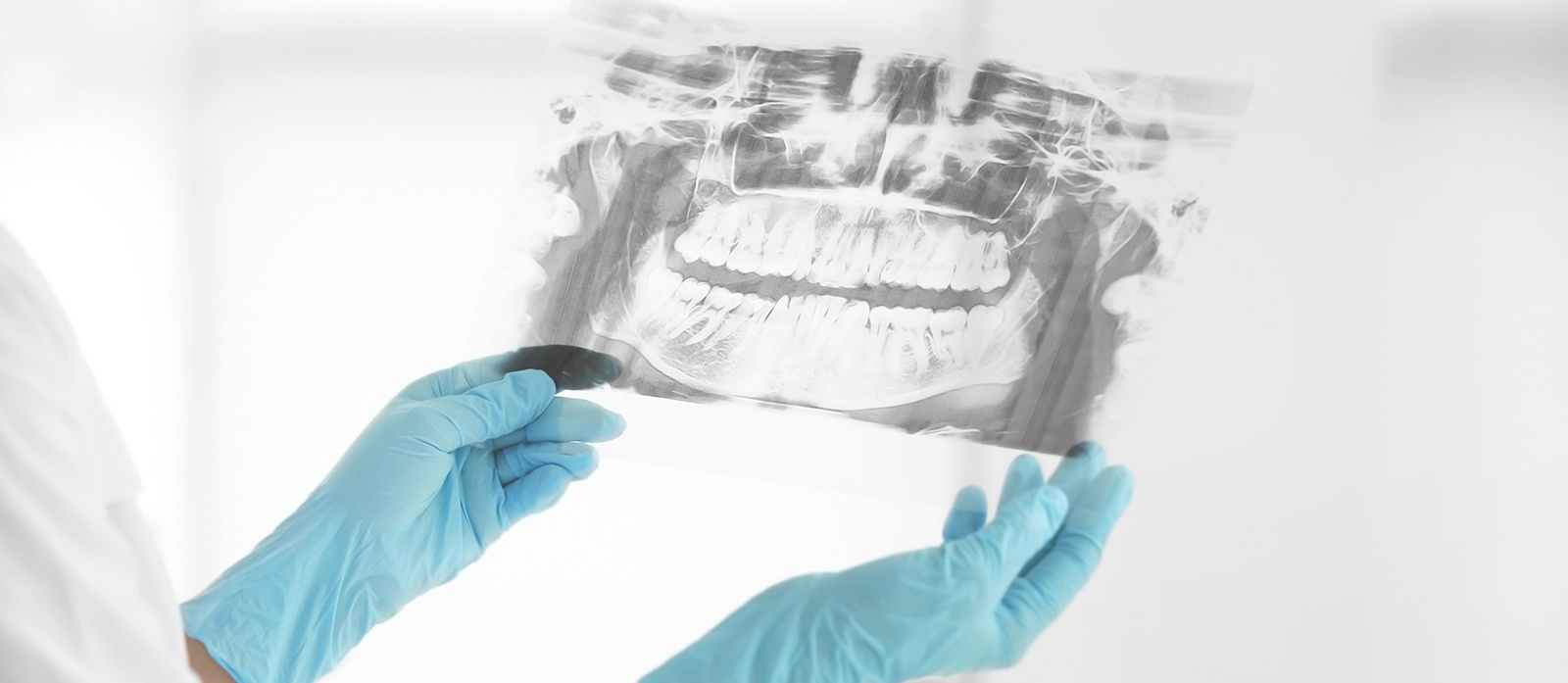Answers to Common Questions
Dental x-rays provide important information about your dental health. They are used to create images called radiographs.
Your dentist uses the images to see your jawbones, the roots of your teeth, teeth under your gums, and the areas between teeth.
Why Are Dental X-Ray Exams Needed?
X-ray images help your dentist find problems that may not be easily seen during your regular dental exam. Treating dental problems at an early stage can save you time and money and prevent pain. It also can help you avoid more serious health problems.
Dental x-rays can show:
- small areas of decay in your teeth and below fillings
- abscesses or cysts
- bone loss due to periodontal (gum) disease
- growth problems
- some types of tumors
- the effects of trauma
- the position of teeth that have not come in yet in children and adults
Types of Dental X-Rays
- Bitewing X-Ray shows several upper and lower teeth from one side of the mouth.
- A Periapical X-Ray shows several teeth and their roots and the jawbone in a certain area of the mouth.
- Occlusal X-Ray shows part of the jaw bone.
- Complete Series is a group of x-rays that shows all the teeth, roots and related areas of the jaws.
- Panoramic X-Ray is a single x-ray that manages to get all the upper and lower teeth, large portions of the jaws and other structures in one picture. This kind of x-ray does not provide as much detail as the x-rays that include smaller areas.


Are Dental X-Rays Safe?
Dental x-rays use very low levels of radiation, much less than that used in other medical imaging. They are done only when needed to make a diagnosis and/or to help your dentist make a treatment plan for you.
If you change dentists, you may be able to have copies of your x-ray images sent from your last dental office to your new one. If not, your new dentist may need to take x-rays.
Dental practices like ours take steps to protect you from radiation, including:
- taking x-ray images only when necessary
- using the smallest x-ray dose possible
- lining the beam up with care
- using proper exposure and processing methods
- minimizing exposure to other parts of your body
If You Are Pregnant or Think You May Be Pregnant
Tell your dentist if you are or might be pregnant. Current guidelines from the doctors that care for women who are pregnant say it’s better for a pregnant woman to have necessary dental x-rays rather than put off having them at a later date. This is because dental disease that is not treated during pregnancy can lead to problems for you and your unborn baby.
If You Have Had Radiation Therapy for Head or Neck Cancer
Radiation therapy to treat head or neck cancer may increase your risk of tooth decay. The dose of radiation from regular dental x-rays is very small compared to the dose used to treat cancer. It’s important to have x-ray exams as needed to find dental problems at an early stage and treat them before they get worse.
Are There Rules About X-Rays?
Federal and state governments have regulations about the proper, safe and effective use of x-rays in dentistry. Your dentist follows these rules to keep you safe. If you have questions about x-rays, talk with your dentist or dental staff.

